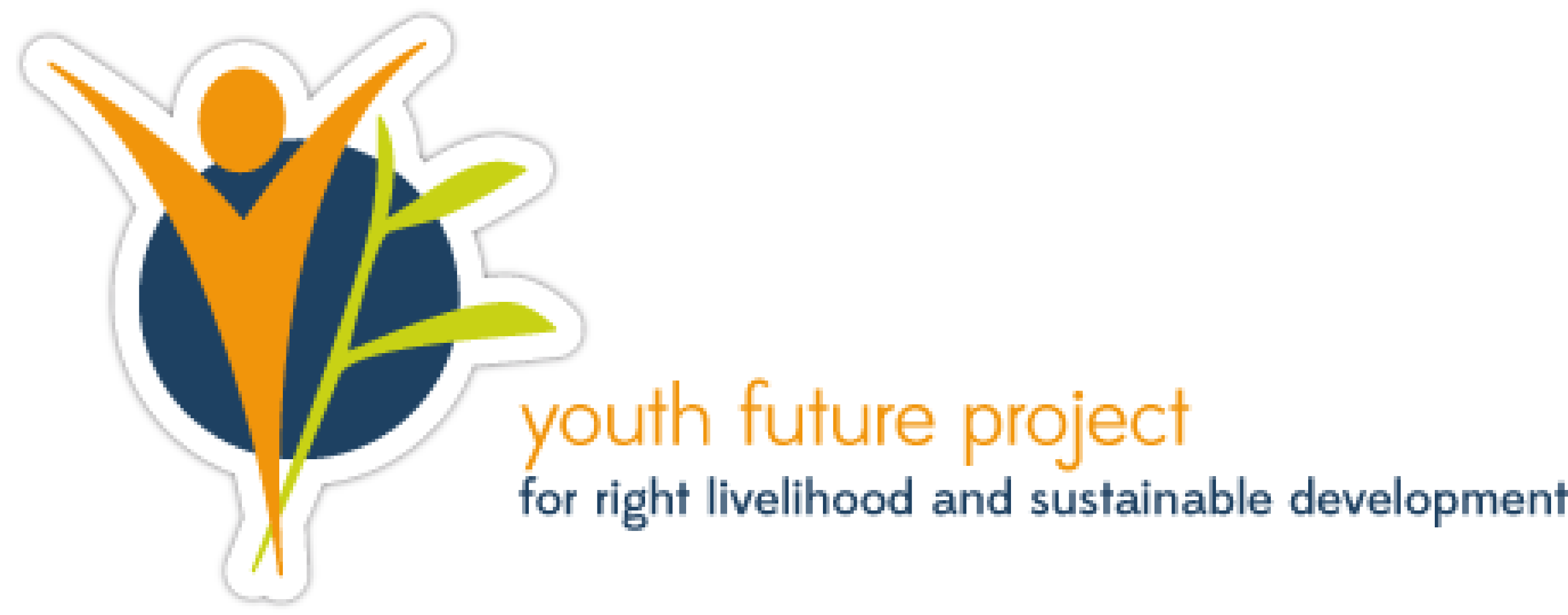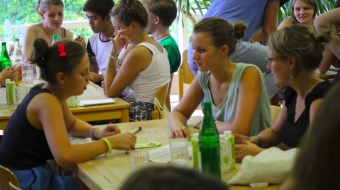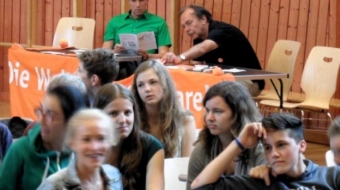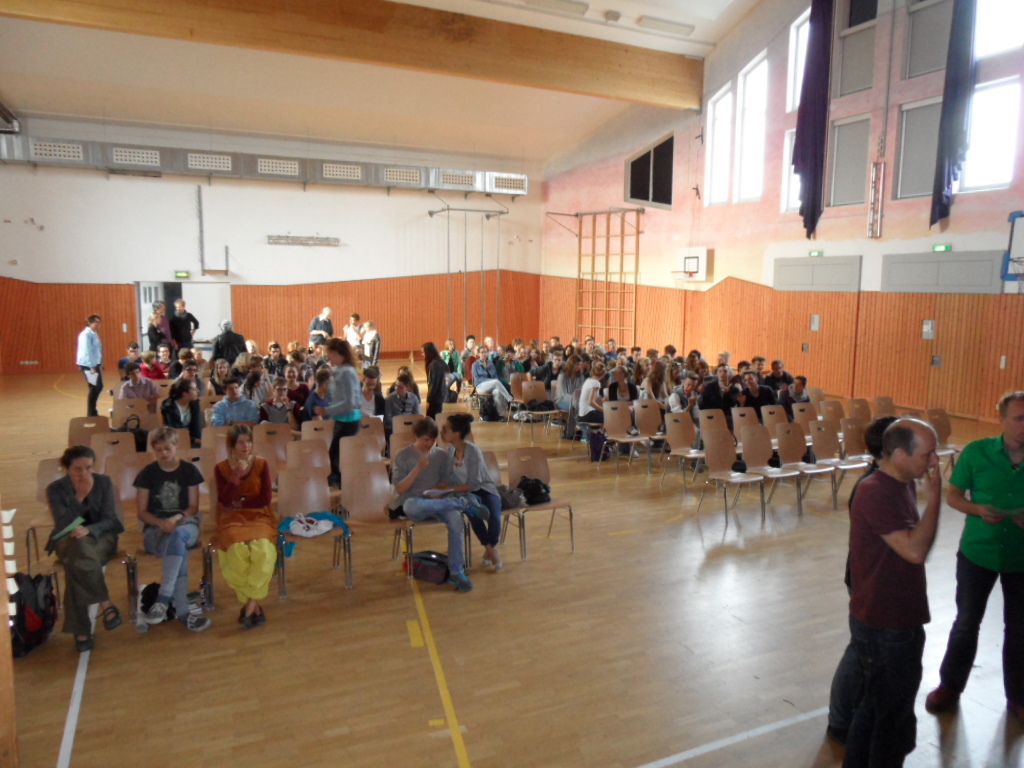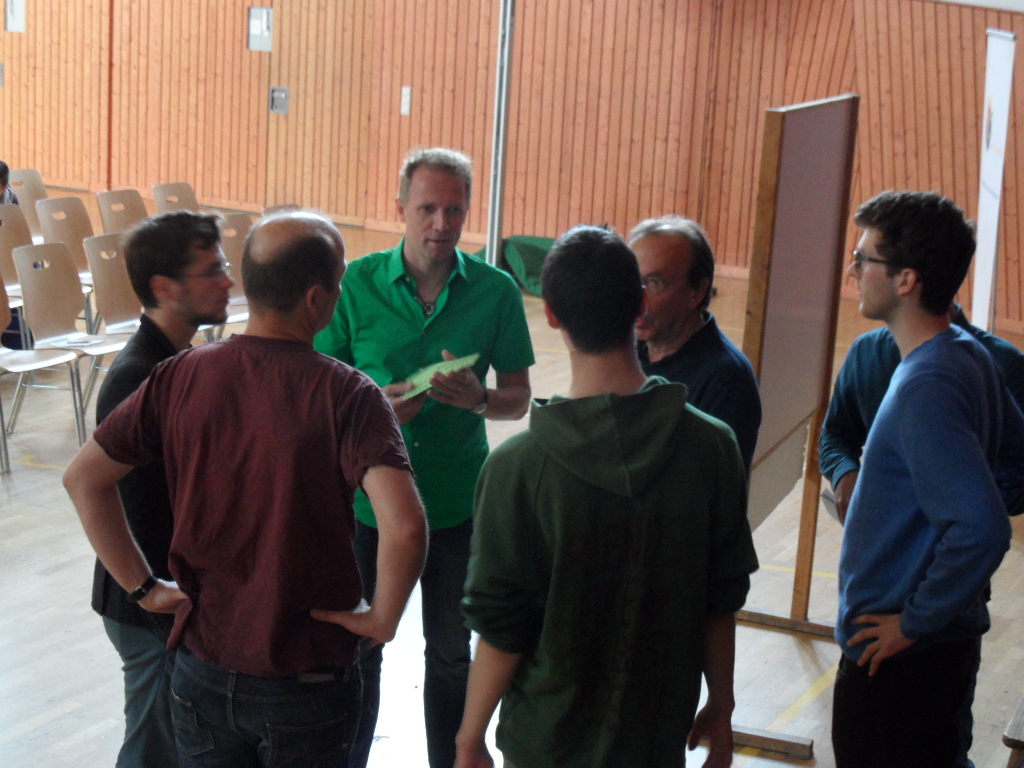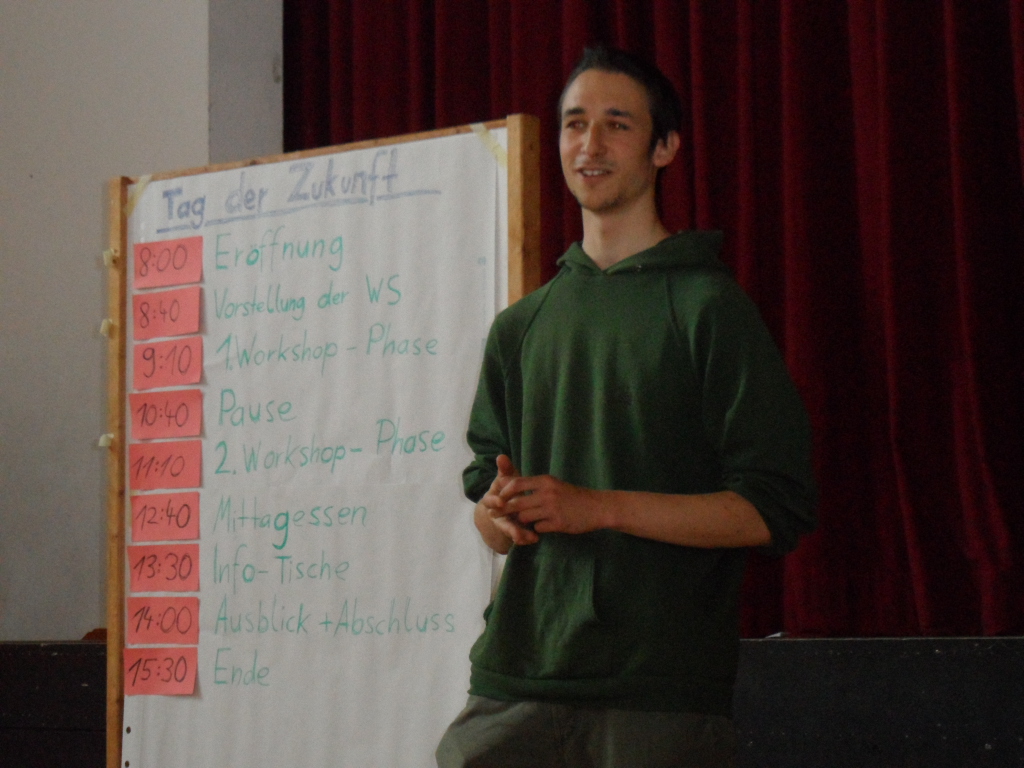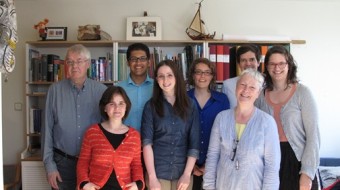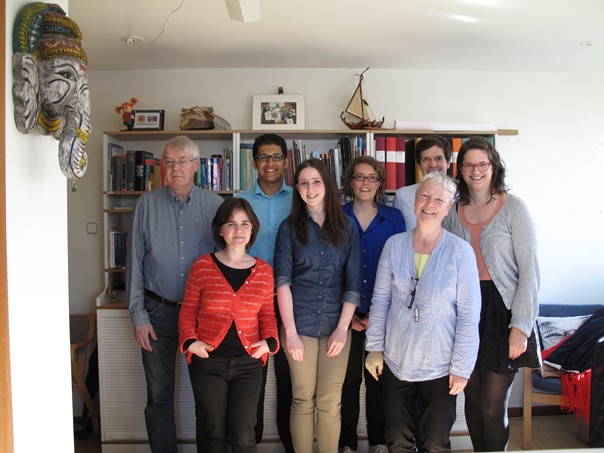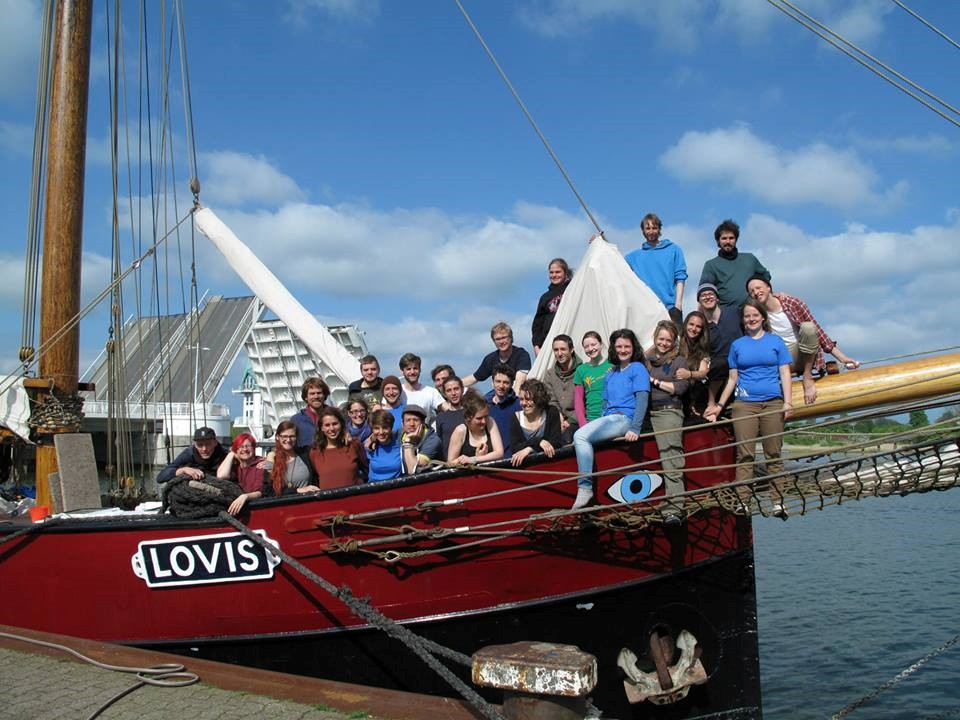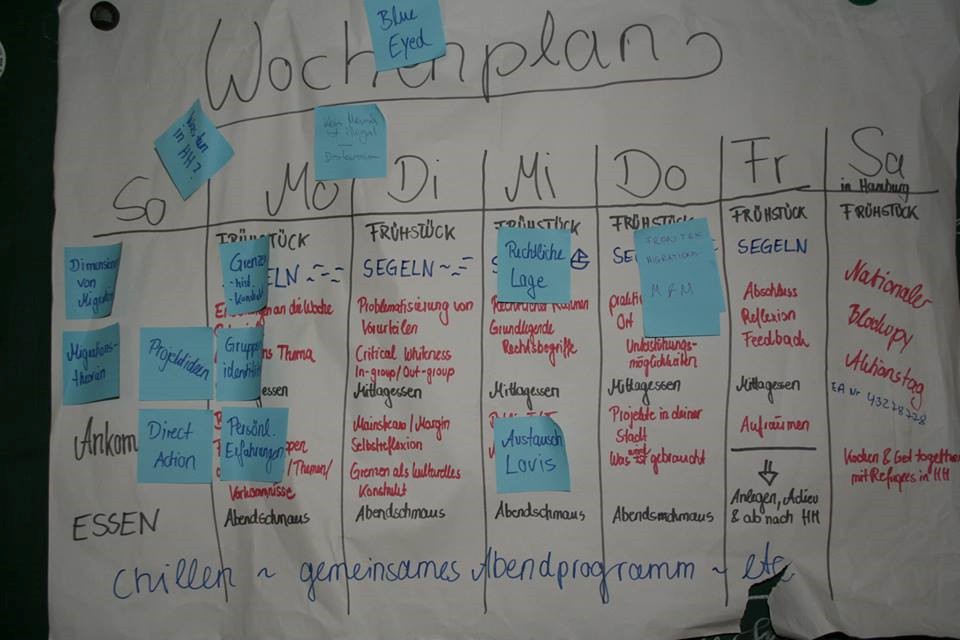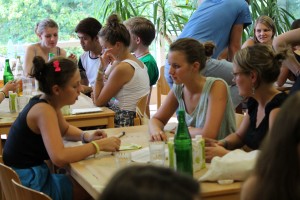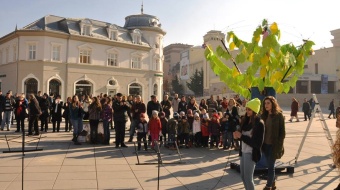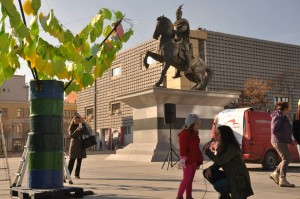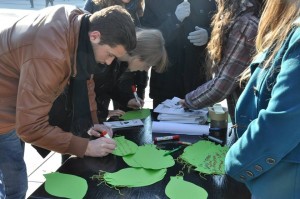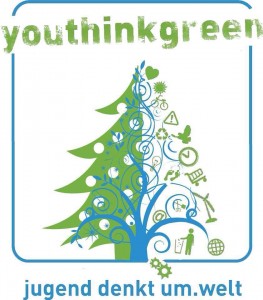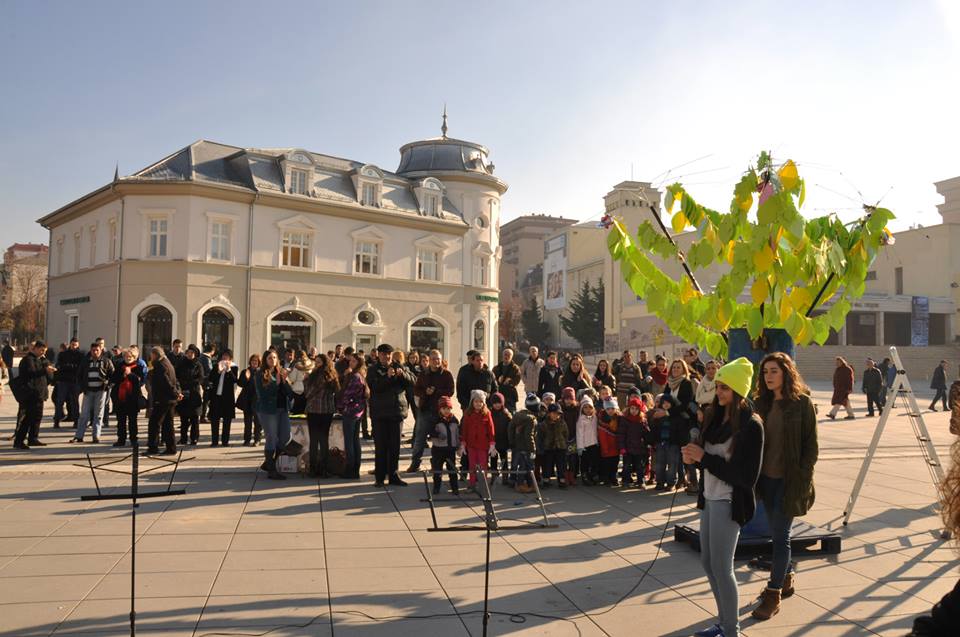Workshop Invitation – Empowering Research Methodologies Training
28. – 31. August 2014 in Bonn, Germany
What is my role as a researcher? What is the role of science in society? And is empowerment relevant for science? We cordially invite you to a training workshop in Empowering Research Methodologies, provided to you by the Youth Future Project e.V. (YFP) and the Right Livelihood College (RLC). The YFP has made it its mission to support young people in creating and promoting practices for the transformation towards a life-sustaining society. Transformative approaches are also springing up in many scientific disciplines today, with empowering aspects taking a central role in the development towards transdisciplinarity.
This training workshop is dedicated to exploring empowering research methods based on Participatory Action Research with techniques of visualising knowledge and ideas. It seeks to enable young researchers to work cooperatively with the communities, in which they research, and to apply methodologies which support the communities in orienting their own livelihoods towards sustainable development.
The intention of this workshop is to launch a cooperation amongst young researchers for furthering empowering methodologies, and every researcher is welcome, especially if you intend to apply these methodologies and engage in promoting them. Therefore, participation in the workshop will be for free and there is the possibility to ask for support in covering travel and accommodation costs. In terms of workshop organisation we would like to foster a culture of cooperativeness and self- determination. Thus we welcome your ideas and suggestions and will support the participants in organising themselves, e.g. for car-sharing. Please register as soon as possible by filling in the attached registration form and sending it to empowering@youthfuture.de
About the Trainers
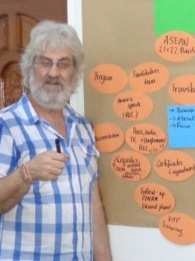 Dr. Hermann J. Tillmann is an agricultural Anthropologist with a regional specialization in mountain regions and peoples in Latin America and in SE-Asia and SW-China. He has many years of experience in rural communication, amongst others 10 years in the highlands of Peru and 6 years in Yunnan, China. He was co-founder of the Participatory Technology Development (PTD)/ Participatory Innovation Development (PID) St. Ulrich Group (1993). He is advisor of the Centre for Agroecology, Water and Resilience of Coventry University for the Andean Program on Food Sovereignty since 2007, advisor of Right Livelihood College in Bonn and Penang since 2009, and visiting professor of Chiang Mai University, Chulalongkorn University, Thailand and Passau University (South East Asian Institute), Germany in charge of Participatory Action Research and Indigenous Knowledge. He is a consultant to Burmese NGOs and the Heinrich Boell Foundation in Myanmar for participatory action research methods of Indigenous Knowledge and Natural Resource Management. His main concern is the empowerment of local mountain people to be able to decide on their future livelihoods in peace.
Dr. Hermann J. Tillmann is an agricultural Anthropologist with a regional specialization in mountain regions and peoples in Latin America and in SE-Asia and SW-China. He has many years of experience in rural communication, amongst others 10 years in the highlands of Peru and 6 years in Yunnan, China. He was co-founder of the Participatory Technology Development (PTD)/ Participatory Innovation Development (PID) St. Ulrich Group (1993). He is advisor of the Centre for Agroecology, Water and Resilience of Coventry University for the Andean Program on Food Sovereignty since 2007, advisor of Right Livelihood College in Bonn and Penang since 2009, and visiting professor of Chiang Mai University, Chulalongkorn University, Thailand and Passau University (South East Asian Institute), Germany in charge of Participatory Action Research and Indigenous Knowledge. He is a consultant to Burmese NGOs and the Heinrich Boell Foundation in Myanmar for participatory action research methods of Indigenous Knowledge and Natural Resource Management. His main concern is the empowerment of local mountain people to be able to decide on their future livelihoods in peace.
 Ana Adzersen is Facilitator for Sustainable Cooperation. She gives workshops and coaches teams for building a stable basis for long-term cooperation. By facilitating group processes with innovative methods, she initiates a lasting interrelation of the development of each individual with the vision of their team and community. The result is commitment and activism towards sustainable development.
Ana Adzersen is Facilitator for Sustainable Cooperation. She gives workshops and coaches teams for building a stable basis for long-term cooperation. By facilitating group processes with innovative methods, she initiates a lasting interrelation of the development of each individual with the vision of their team and community. The result is commitment and activism towards sustainable development.
More Informations and Registration:
Workshop Invitation – Empowering Research Methodologies Empowering Methodologies – Registration Form
Workshop Invitation – Empowering Research Methodologies Training
28. – 31. August 2014 in Bonn, Germany
What is my role as a researcher? What is the role of science in society? And is empowerment relevant for science? We cordially invite you to a training workshop in Empowering Research Methodologies, provided to you by the Youth Future Project e.V. (YFP) and the Right Livelihood College (RLC). The YFP has made it its mission to support young people in creating and promoting practices for the transformation towards a life-sustaining society. Transformative approaches are also springing up in many scientific disciplines today, with empowering aspects taking a central role in the development towards transdisciplinarity.
This training workshop is dedicated to exploring empowering research methods based on Participatory Action Research with techniques of visualising knowledge and ideas. It seeks to enable young researchers to work cooperatively with the communities, in which they research, and to apply methodologies which support the communities in orienting their own livelihoods towards sustainable development.
The intention of this workshop is to launch a cooperation amongst young researchers for furthering empowering methodologies, and every researcher is welcome, especially if you intend to apply these methodologies and engage in promoting them. Therefore, participation in the workshop will be for free and there is the possibility to ask for support in covering travel and accommodation costs. In terms of workshop organisation we would like to foster a culture of cooperativeness and self- determination. Thus we welcome your ideas and suggestions and will support the participants in organising themselves, e.g. for car-sharing. Please register as soon as possible by filling in the attached registration form and sending it to empowering@youthfuture.de
About the Trainers
 Dr. Hermann J. Tillmann is an agricultural Anthropologist with a regional specialization in mountain regions and peoples in Latin America and in SE-Asia and SW-China. He has many years of experience in rural communication, amongst others 10 years in the highlands of Peru and 6 years in Yunnan, China. He was co-founder of the Participatory Technology Development (PTD)/ Participatory Innovation Development (PID) St. Ulrich Group (1993). He is advisor of the Centre for Agroecology, Water and Resilience of Coventry University for the Andean Program on Food Sovereignty since 2007, advisor of Right Livelihood College in Bonn and Penang since 2009, and visiting professor of Chiang Mai University, Chulalongkorn University, Thailand and Passau University (South East Asian Institute), Germany in charge of Participatory Action Research and Indigenous Knowledge. He is a consultant to Burmese NGOs and the Heinrich Boell Foundation in Myanmar for participatory action research methods of Indigenous Knowledge and Natural Resource Management. His main concern is the empowerment of local mountain people to be able to decide on their future livelihoods in peace.
Dr. Hermann J. Tillmann is an agricultural Anthropologist with a regional specialization in mountain regions and peoples in Latin America and in SE-Asia and SW-China. He has many years of experience in rural communication, amongst others 10 years in the highlands of Peru and 6 years in Yunnan, China. He was co-founder of the Participatory Technology Development (PTD)/ Participatory Innovation Development (PID) St. Ulrich Group (1993). He is advisor of the Centre for Agroecology, Water and Resilience of Coventry University for the Andean Program on Food Sovereignty since 2007, advisor of Right Livelihood College in Bonn and Penang since 2009, and visiting professor of Chiang Mai University, Chulalongkorn University, Thailand and Passau University (South East Asian Institute), Germany in charge of Participatory Action Research and Indigenous Knowledge. He is a consultant to Burmese NGOs and the Heinrich Boell Foundation in Myanmar for participatory action research methods of Indigenous Knowledge and Natural Resource Management. His main concern is the empowerment of local mountain people to be able to decide on their future livelihoods in peace.
 Ana Adzersen is Facilitator for Sustainable Cooperation. She gives workshops and coaches teams for building a stable basis for long-term cooperation. By facilitating group processes with innovative methods, she initiates a lasting interrelation of the development of each individual with the vision of their team and community. The result is commitment and activism towards sustainable development.
Ana Adzersen is Facilitator for Sustainable Cooperation. She gives workshops and coaches teams for building a stable basis for long-term cooperation. By facilitating group processes with innovative methods, she initiates a lasting interrelation of the development of each individual with the vision of their team and community. The result is commitment and activism towards sustainable development.
More Informations and Registration:
Workshop Invitation – Empowering Research Methodologies Empowering Methodologies – Registration Form
